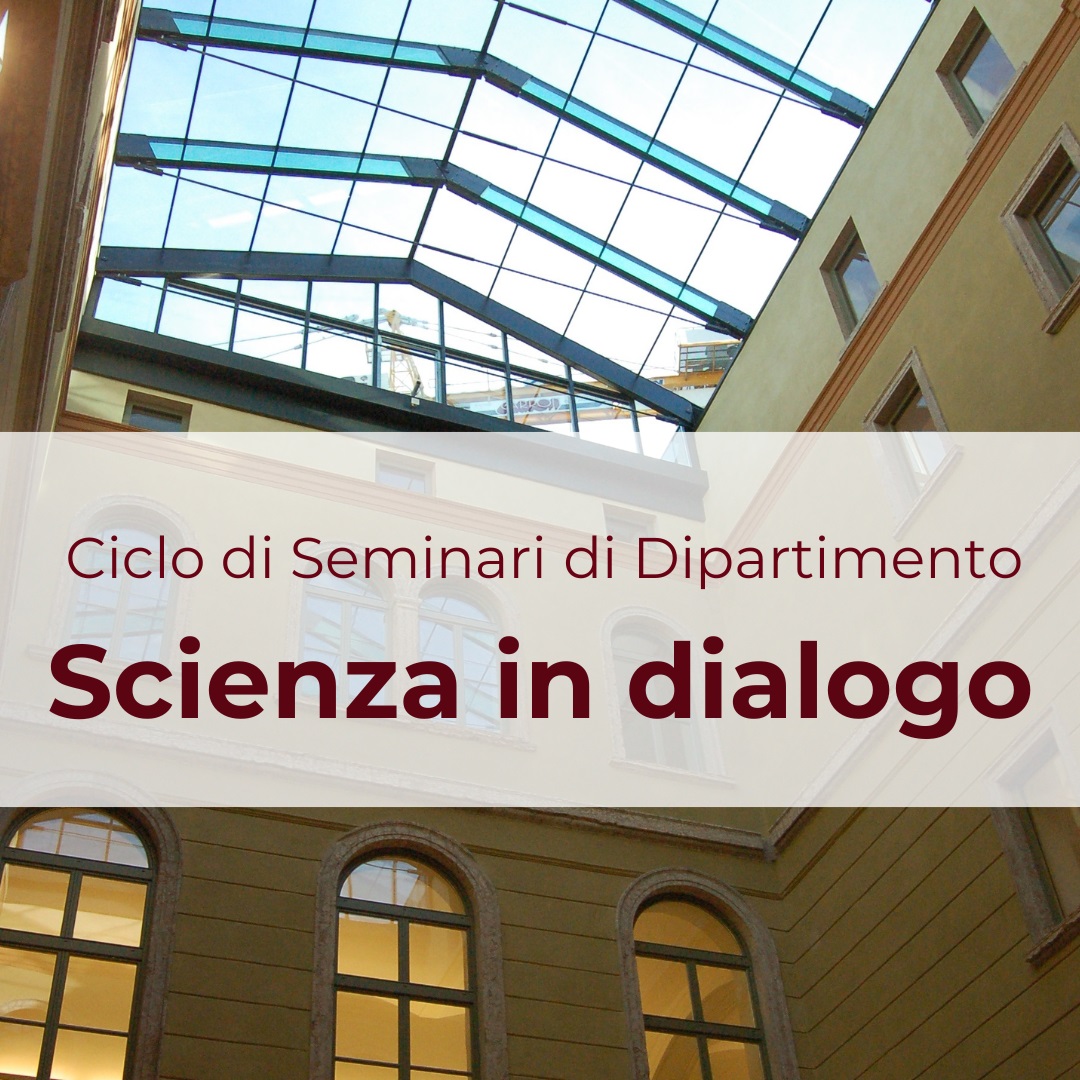
Thomas Kuhn on the Human Sciences: A Critique

The Science in Dialogue seminar series explores the relationship between the sciences, highlighting connections, mutual influences and common challenges. The aim is to stimulate critical and open discussion, fostering an integrated view of knowledge and offering food for thought on the very nature of scientific research in its cultural, historical and social context. Through interdisciplinary meetings, scholars from different fields and backgrounds will discuss the role of science in the construction of knowledge and in contemporary society. Central issues such as the relationship between science and history, the impact of scientific innovations on humanistic thought, the role of scientific communication and the tensions between specialisation and interdisciplinarity will be explored. Each seminar will be an opportunity to question how science contributes not only to technical progress, but also to the understanding of the world and man. The historical-philosophical perspective, in particular, will make it possible to highlight how science is not an isolated activity, but the result of a continuous dialogue with the social, cultural and intellectual context in which it develops, offering essential tools for interpreting the challenges of the present and the future.
Abstract
In a short discussion entitled ‘The Natural and the Human Sciences’ Thomas Kuhn recorded that he had been influenced by the way in which thinkers such as Max Weber, Ernst Cassirer and Charles Taylor portrayed the human sciences. Their influence, though, was on his way of thinking about the natural sciences. Kuhn explained his reasons for agreeing with such thinkers that the natural and the human sciences are different in kind, while also explaining why he did not subscribe to their way of making that distinction. After sketching his views on the natural sciences and the idea of ‘paradigms’, as presented in his famous book The Structure of Scientific Revolutions (1962, 1970), I take issue both with Kuhn’s own way of making the distinction between the natural and the human sciences, and with his critique of the usual way of making that distinction.
I argue that Kuhn fails to make his case that the activities of natural scientists are sometimes, but not ordinarily, hermeneutic. I also cast doubt on the thesis he shares with Taylor, that the activities of social scientists must be hermeneutic ‘through and through’.
Considering Kuhn’s claim that natural scientists are mainly engaged in ‘normal science’, whereas social scientists hardly ever engage in such activities, everything depends on whether there are ‘paradigms’ in social science. Without trying to decide whether there are such paradigms (of the relevant kind), I try to set out what would count as such.
Kuhn claims that in the social sciences new interpretations are the recognised aim of the practitioners. I do not disagree with this (although Kuhn exaggerates in conflating new interpretations with new kinds of interpretation). But this should not be taken as meaning that new paradigms are their recognised object. If we accept Kuhn’s concept of a paradigm, paradigms are the unsought-for and unintended by-products of normal scientific activity, so it makes no sense to suppose that scientists (of any kind) are trying to find new paradigms. I argue that we can still distinguish between the objects of the natural and the human sciences, even though it may be right to say something that Kuhn didn’t quite want to say: that there are paradigms in the social sciences.